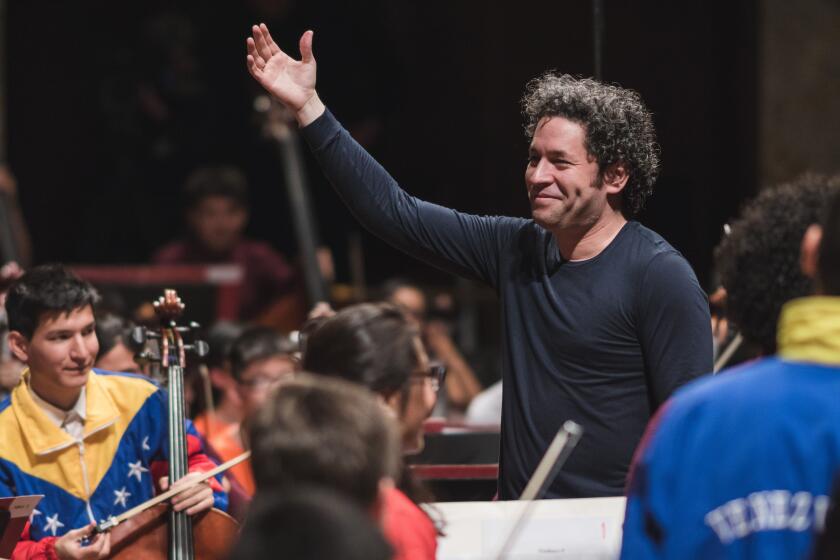New Juilliard Quartet Avoids Taking Risks
- Share via
It was a different Juilliard String Quartet that arrived Sunday at Caltech’s Beckman Auditorium in Pasadena, both in personnel and sound. In its first local appearance without founding violinist Robert Mann--Ronald Copes has joined the group as second violin, and former second violinist Joel Smirnoff has taken over for Mann at first--the group showed that it has already cohered tightly as a unit. But there were many things missing.
Gone was the famed edginess of the old ensemble, gone was the penetrating intellect and the trenchant program. In their place was a well-manicured and well-mannered sound, a predilection for surface beauties and a risk-free program that included some early Mendelssohn, some early and uncharacteristic Copland and the ever-safe rhapsodies of Brahms’ Clarinet Quintet.
This was but one afternoon, though, not necessarily the future. In the meantime, these players remain a first-class quartet, at least on a technical level.
The Mendelssohn’s Second Quartet, written when he was 18 and in the thrall of the late Beethoven quartets, never quite makes it to those heights, despite its clear accomplishment. Though multicolored and expressive, the Juilliard’s performance stopped short of the dramatic abandon required at key points, Smirnoff in particular opting for sweetness and purity over heft.
Copland’s obscure Three Pieces for String Quartet, actually a compilation of separate works composed in his 20s, were thin morsels indeed--Copland still finding his way. Neither indicative of his early radicalism nor his later populism, they seemed, frankly, a waste of time, though played well enough.
With Charles Neidich joining the group on clarinet, the concert concluded with the Brahms, in a flowery reading. Phrases were dispatched in roller-coaster swoons, dynamics made hairpin turns, pianissimos hovered and halted, getting even softer. Everything was beauteous and gilded. Brahms doesn’t need this kind of help. The performance drew attention to itself and focused a listener on minute and local details--not the big picture, something the old Juilliard rarely missed.
More to Read
The biggest entertainment stories
Get our big stories about Hollywood, film, television, music, arts, culture and more right in your inbox as soon as they publish.
You may occasionally receive promotional content from the Los Angeles Times.










